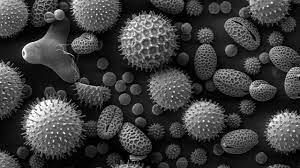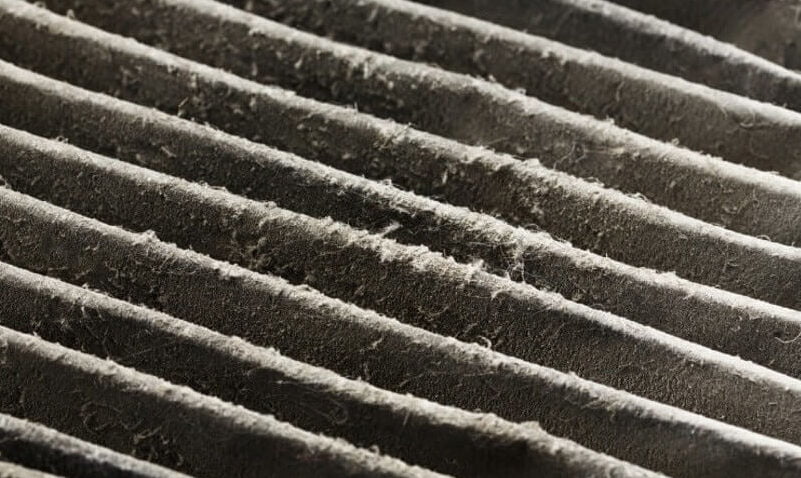Mold in air filters is a problem that many people face. There are many ways to get rid of mold in air filters, but the best way is to use an air purifier. Air purifiers are designed to remove mold from the air, and they do this by using a filter. The filter traps the mold spores and prevents them from being able to spread through the air. This means that your air will be much cleaner and you will not have to worry about mold in air filters.
What Causes Mold in Air Filters?
Mold in air filters is a common problem in homes and businesses. There are a few things that can cause mold to grow in air filters, and understanding these causes can help you avoid the problem.
One of the most common causes of mold in air filters is a lack of ventilation. When the air in a room is stagnant, it can create the perfect environment for mold to grow. If you notice mold in your air filter, be sure to open a window or door to allow fresh air to circulate.
Another cause of mold in air filters is a humid environment. Mold thrives in moist conditions, so if your air filter is located in a humid room, it’s more likely to develop mold. To combat this, use a dehumidifier in the room or keep the air filter in a dry, well-ventilated area.
Mold can also grow in air filters that are not regularly replaced. Old air filters can become breeding grounds for mold, so it’s important to replace them on a regular basis. Depending on the type of filter you have, you may need to replace it every few months or every year.
If you find mold in your air filter, don’t panic. The problem can usually be remedied by taking a few simple steps. Be sure to ventilate the room, replace the air filter, and keep the area around the filter dry. With a little bit of effort, you can prevent mold from growing in your air filter and keep your home or office air quality high.
The Benefits of Using an Air Purifier to Combat Mold
Most people don’t think about the air quality inside their homes, but the truth is, the air inside your home can be more polluted than the air outside. Indoor air pollution is caused by a variety of things, including dust, pollen, pet dander, smoke, and mold. If you’re concerned about the air quality in your home, you may want to consider investing in an air purifier.
Air purifiers work by drawing in polluted air and running it through a filter that captures pollutants. Some air purifiers also use UV light to kill bacteria and viruses. There are a variety of air purifiers on the market, so it’s important to do your research to find the one that’s right for your home.
One of the benefits of using an air purifier is that it can help to improve indoor air quality and reduce mold. Mold is a type of fungus that can grow in damp, humid environments. If you have mold in your home, it can cause a variety of health problems, including respiratory problems, skin irritation, and headaches.
If you’re concerned about the air quality in your home, an air purifier is a great way to improve it. Air purifiers can help to remove pollutants from the air, including mold. There are a variety of air purifiers on the market, so it’s important to do your research to find the one that’s right for your home.

Tips to Keep Mold Away from Your Air Filter
Mold in air filter is a problem that many homeowners face. There are a few simple tips that can help keep mold away from your air filter and help improve the quality of your indoor air.
- Make sure that your home is well-ventilated. good ventilation will help to reduce the amount of moisture in the air, which will in turn help to reduce the growth of mold.
- Keep your air filter clean. A clean air filter will help to remove mold spores and other allergens from the air, which will help to improve the quality of your indoor air.
- Use an air purifier. An air purifier will help to remove mold spores and other allergens from the air, which will help to improve the quality of your indoor air.
- Use a dehumidifier. A dehumidifier will help to reduce moisture in the air, which will help to prevent the growth of mold.
By following these simple tips, you can help to keep mold away from your air filter and improve the quality of your indoor air.
Potential Risks of Mold in Air Filters
Mold is a type of fungus that can be found both indoors and outdoors. While mold is necessary for the breakdown of organic matter, it can also be harmful to humans, causing respiratory problems, skin irritation, and other health problems. Mold spores are microscopic and can be found in the air, on surfaces, and in dust.
One of the places mold can be found is in your air filter. Your air filter is responsible for trapping particles like dust, pollen, and smoke from entering your home. However, mold spores can also be trapped in your air filter. If the mold spores are not removed from your air filter, they can eventually start to grow and multiply.
While mold in your air filter may not seem like a big deal, it can actually be quite dangerous. Mold spores can be released into the air when your air filter is turned on, which can then be breathed in by you and your family. Inhaling mold spores can cause a variety of respiratory problems, including asthma, bronchitis, and allergies. In some cases, mold spores can even cause serious lung infections.
If you suspect that there is mold in your air filter, it is important to take action right away. The first step is to remove the air filter from your home and throw it away. Then, you should clean the area where the air filter was located with a bleach solution. It is also a good idea to have your ductwork professionally cleaned to remove any mold spores that may have entered your home through the ducts.
Common Questions About Air Purifiers and Mold in Air Filters
An air purifier is a device that removes contaminants from the air in a room. These devices are commonly used in homes and offices to remove allergens, smoke, dust, and mold from the air. Many people suffer from allergies and asthma, and an air purifier can help to improve the quality of the air they breathe.
Mold is a type of fungi that can grow both indoors and outdoors. Mold spores are tiny and can be invisible to the naked eye. When mold spores land on a wet or damp surface, they begin to grow. Mold can cause a variety of health problems, including respiratory problems, skin irritation, and headaches.
Air purifiers can help to remove mold spores from the air, and many air purifiers come with special filters designed to trap mold spores. However, it is important to clean and replace the air purifier filter regularly to prevent mold from growing on it. Some air purifiers also have ultraviolet light bulbs that kill mold spores.
If you think you may have a mold problem in your home, it is important to have it inspected by a professional. Mold can be removed from surfaces with a detergent and water solution, but it is important to make sure that all of the mold is removed to prevent it from coming back.
Best Practices for Preventing Mold in Air Filters
Mold in air filters is a common problem in many homes and businesses. There are a few key things you can do to prevent mold in your air filters.
First, it’s important to understand that mold needs water to grow. Any time there is water present, there is potential for mold growth. So, one of the best ways to prevent mold growth in air filters is to keep them dry.
If your air filter is wet, it’s important to dry it off as soon as possible. The best way to do this is to remove the filter from the unit and let it air dry. If you have a fan or hair dryer, you can speed up the drying process. Just be sure not to use too much heat, as this can damage the filter.
Another way to prevent mold in air filters is to clean them on a regular basis. Depending on the type of filter you have, you may be able to clean it with soap and water. However, some filters cannot be cleaned and must be replaced.
In general, it’s a good idea to check your air filters monthly and clean or replace them as needed. This will help to ensure that they are free of mold and other contaminants.
These simple tips can help prevent mold growth in air filters and keep your home or office air quality high.

